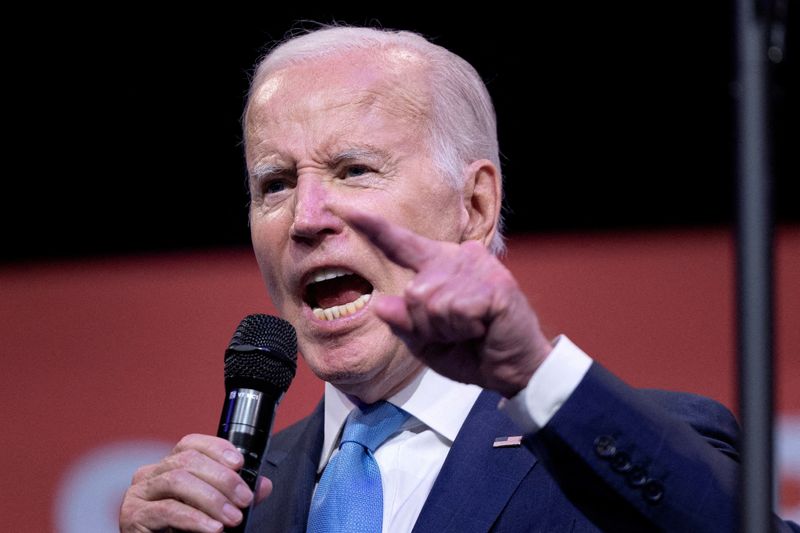QUOTES: Biden, Modi take careful aim at China, Russia in joint statement
2023.06.22 19:01

© Reuters. U.S. President Joe Biden delivers remarks at the National Safer Communities Summit at the University of Hartford, in West Hartford, Connecticut, U.S., June 16, 2023. REUTERS/Tom Brenner
WASHINGTON (Reuters) – The United States and India declared themselves “among the closest partners in the world” on Thursday during a state visit by Indian Prime Minister Narendra Modi to Washington hosted by President Joe Biden.
Washington has been frustrated by India’s close ties with Russia while Moscow wages war in Ukraine. Modi did not address China or Russia directly, and Biden only mentioned China in response to a reporter’s question. But a joint statement issued by the two after their 2.5 hour private meeting seemed to take aim at both nations.
INTERNATIONAL ORDER
The two sides emphasized the importance of “rules-based international order,” saying “the contemporary global order has been built on principles of the UN Charter, international law, and respect for sovereignty and territorial integrity of states.”
“The United States and India reaffirmed their resolve to counter any attempts to unilaterally subvert the multilateral system.”
UKRAINE TRAGEDY
The two leaders “expressed their deep concern over the conflict in Ukraine and mourned its terrible and tragic humanitarian consequences,” noting the “serious and growing impacts of the war on the global economic system, including on food, fuel and energy security, and critical supply chains.”
Both countries pledged “continuing humanitarian assistance to the people of Ukraine” and “concurred on the importance of post-conflict reconstruction in Ukraine.”
INDO-PACIFIC AND SOUTH CHINA SEA
The two “reiterated their enduring commitment to a free, open, inclusive, peaceful, and prosperous India-Pacific region with respect for territorial integrity and sovereignty, and international law,” while expressing “concern over coercive actions and rising tensions” and opposition to “destabilizing or unilateral actions that seek to change the status quo by force.”
The leaders “emphasized the importance of adherence to international law, particularly as reflected in the United Nations Convention on the Law of the Sea (UNCLOS), and the maintenance of freedom of navigation and overflight, in addressing challenges to the maritime rules-based order, including in the East and South China Seas.”








